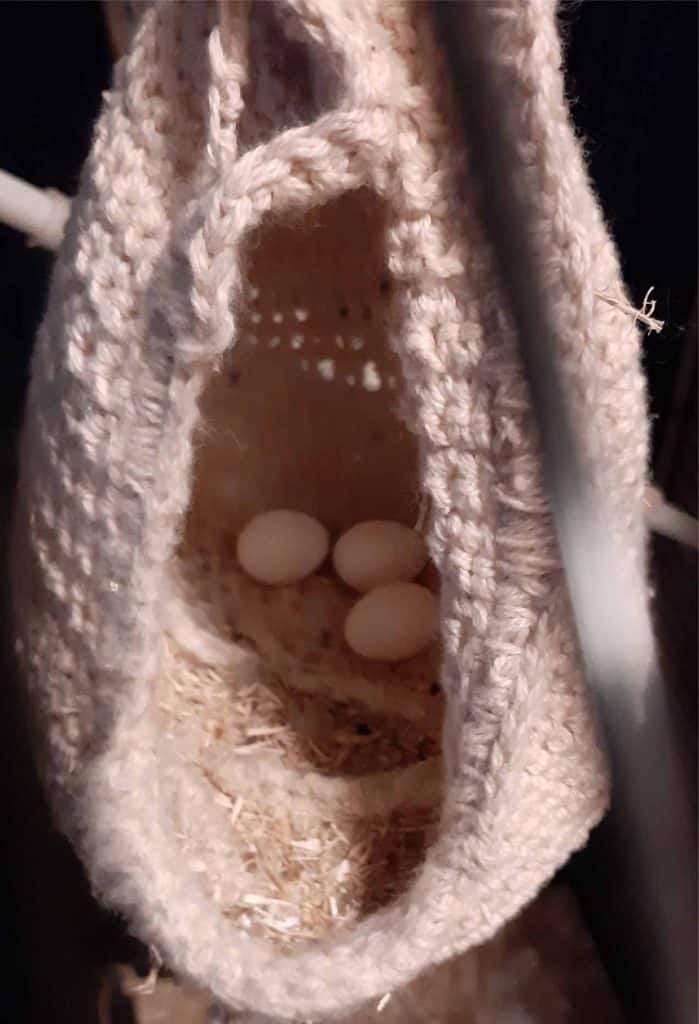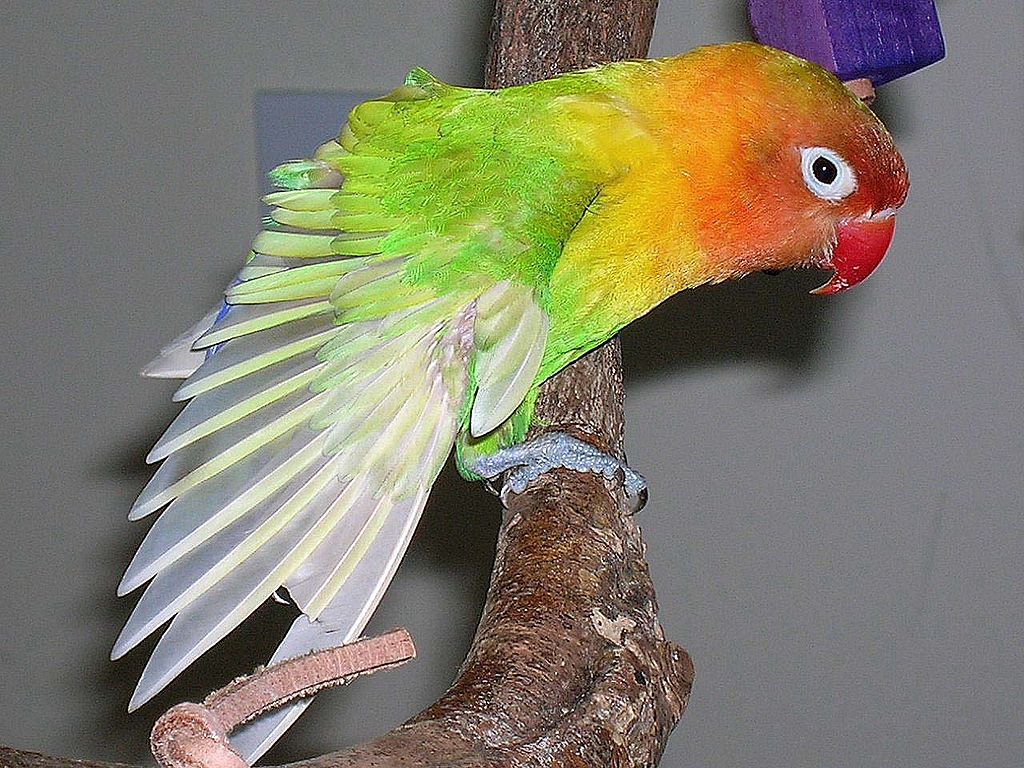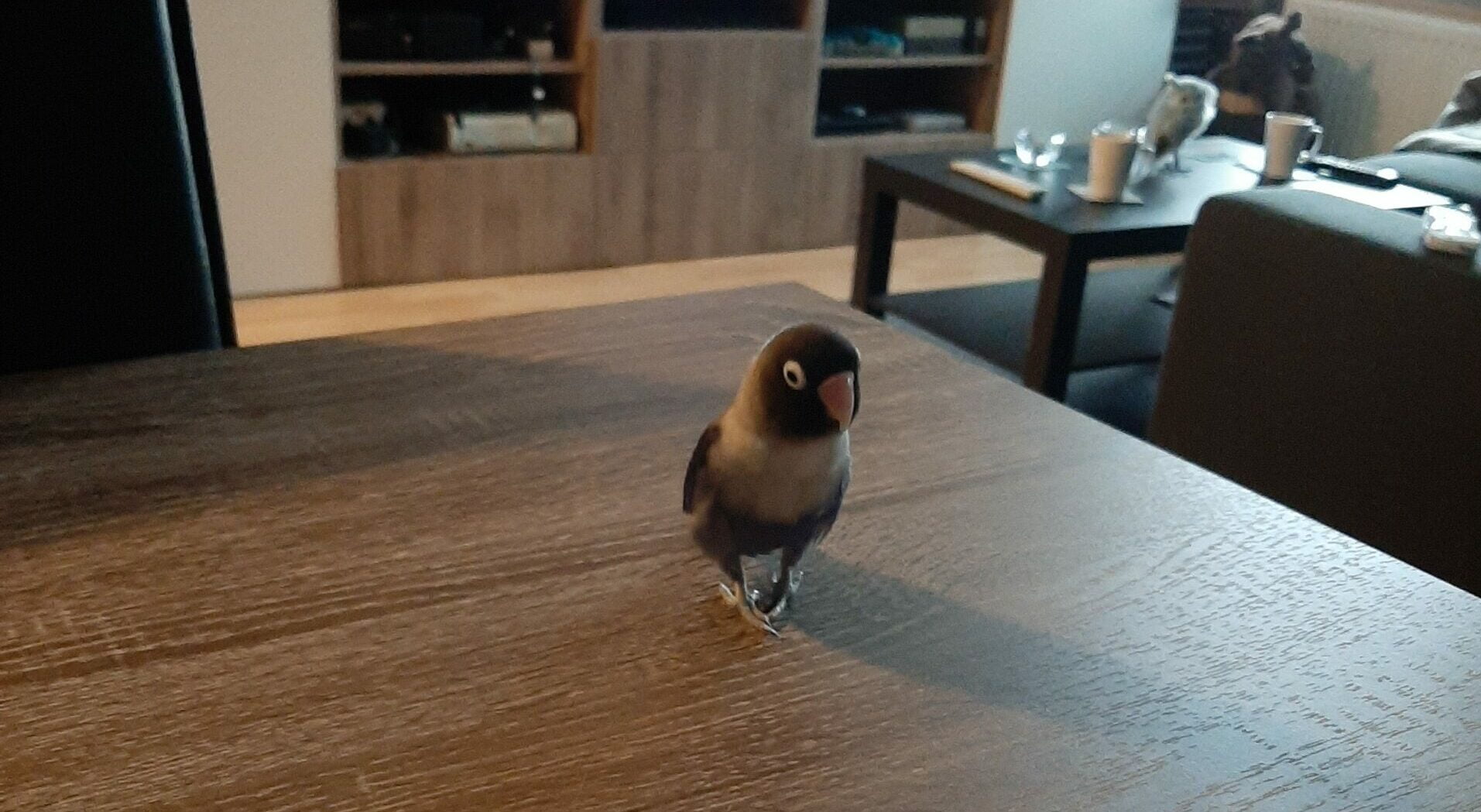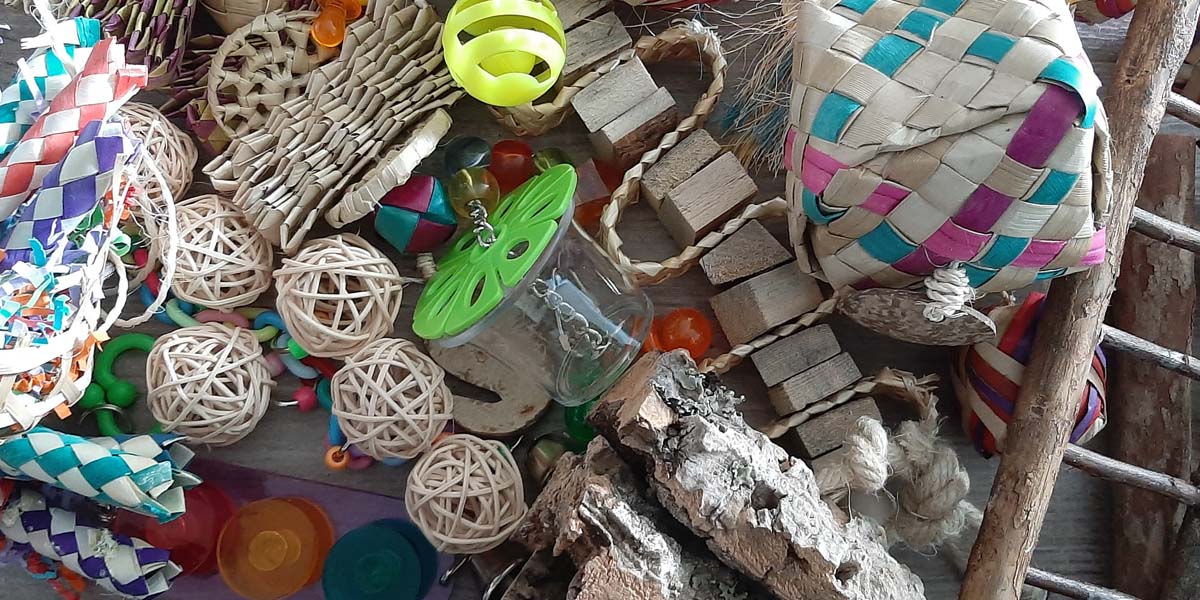Hormonal lovebird - How to recognize?
Just like most other animals, lovebirds have mating seasons in which they become broody (hormonal) and try to breed. To avoid suddenly becoming a grandparent with adorable little birds (which require a lot of extra care), you should recognize your bird’s hormonal behavior like mating displays, aggression, increased appetite and more.
When does hormonal behavior begin?
Your lovebird reaches maturity at around 6 months. From this point on it will get broody (hormonal) about twice a year normally about spring and fall. These are the natural breeding times for lovebirds.
Hormonal behavior through mating displays
When a lovebird is broody (hormonal) they will lift up their butt and spread there wings. Some birds might also make some ‘singing’ noises.
Your bird will also puff out there feathers, looking like a ball.
To rid themselves of some of the frustration, your bird might rub their cloaca* or vent their frustration out on their favorite toy. This is your bird taking care of their sexual frustrations.
* common chamber and outlet into which the intestinal, urinary, and genital tracts open.
Your bird becomes really cuddly with one person in the household
If you live with more than one person in a household, your lovebird might pick a person that it wants to mate with instead of a toy. Unfortunately for it, this is of course not possible but the bird will still try. It will be very cuddly with this person and become possessive over them, not allowing others near that person.
Hormonal behavior in the form of becoming territorial and aggressive
If your bird is normally not territorial but now becomes possessive over its toys, food or their cage. Then it is very likely because it is broody (hormonal). It might also start becoming aggressive, trying to bite you. This is your lovebird’s way of coping with its sexual frustration.
Just give your bird some distance. Your bird doesn’t suddenly hate you.
A hormonal screaming lovebird
Lovebirds can make adorable sounds, but can also be very loud. When hormonal, your lovebird may get a lot louder than normal. It will probably be screeching and not nice to listen to.
If possible move your bird as far as possible from you to not get agitated.
Or use some earplugs or a noise cancelling headphone.
Avoid shouting at your bird. This will only increase the problem.
Preening and feather plucking
Preening is normal behavior for your lovebird. It needs to keep its feathers in optimal form so it can fly. However, some bird owners find their birds preening themselves a lot more than normal when they are hormonal.
Even feather plucking can occur. This is where your bird starts pulling feathers from its body. While this is normal when your bird is nesting, keep an eye on your bird to make sure it doesn’t escalate. Consult your veterinarian if the feather plucking habit doesn’t stop.
Nesting behavior
Your lovebird will want to start collecting things it can use so it can build a nest, these items can be wood chips, parts of shredded toys, paper and more. It will bring this material to a part of the cage and start to build a nest.
When you provide your bird with nesting material like paper, you will see them shred them into small long strips. These strips are then put in between their feathers on their back to be brought back to the nest.
Nests can be built in happy huts, a nest box or a place that your birds think it is a safe place to lay eggs.

Regurgitating food
A lovebird will regurgitate food to their young, but also to their mate. During the mating season, your lovebird might regurgitate food if it has chosen you as its mate. If your bird excessively regurgitates food, you should contact your veterinarian as there might be other problems.





